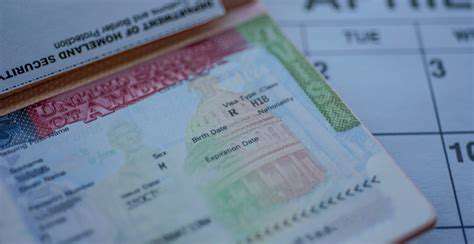Guide to Applying for a Student Visa Abroad
Understanding Visa Types and Their Implications
Understanding Different Visa Categories
Student visas are not a one-size-fits-all solution. Various types of student visas exist, each with specific requirements and implications for international students. These categories often differentiate based on the level of study, from undergraduate programs to postgraduate research. Understanding the nuances of each visa type is crucial for ensuring a smooth application process and avoiding potential pitfalls. This involves researching the specific regulations of the host country, as well as any relevant agreements or treaties that may affect the visa application.
Different countries have different approaches to student visa categories. Some may offer a single visa type for all levels of study, while others may have distinct visas for undergraduate, master's, and doctoral programs. Thorough research into the specific categories available in the destination country is essential. This research should include an examination of the duration of stay permitted under each category and the potential limitations on work authorization, which can impact the student's ability to support themselves financially during their studies.
Visa Requirements and Application Procedures
Applying for a student visa involves a meticulous process. Applicants must be prepared to gather a comprehensive set of documents, including academic transcripts, proof of financial support, and possibly language proficiency tests. The specific requirements can vary significantly depending on the destination country and the chosen institution. It is vital to understand the precise requirements and obtain all necessary documentation in advance to avoid delays in the application process. Failing to adhere to the specific requirements can lead to delays or rejection of the visa application, potentially impacting the student's ability to commence their studies.
The application procedures themselves can be complex, involving online portals, specific forms, and in-person interviews. Understanding the application process and adhering to the deadlines outlined by the relevant authorities is essential for a successful application. Students should also be aware of any potential fees associated with the visa application and processing. A thorough understanding of these procedures and requirements is fundamental to a successful application and timely entry into the chosen educational program.
Financial Implications and Supporting Documents
A crucial aspect of securing a student visa is demonstrating sufficient financial resources to support your studies. This often involves providing proof of funds, such as bank statements, scholarship letters, or sponsorship agreements. The specific amount required can vary based on the country and the duration of the program. Failing to demonstrate adequate financial resources can significantly impact the visa application process. Understanding the financial requirements in advance is essential to ensure a successful application.
Supporting documents, beyond financial proof, often include academic records, proof of enrollment, and sometimes, letters of recommendation. Each document plays a crucial role in demonstrating the applicant's eligibility for a student visa. The importance of accurate and complete documentation cannot be overstated. A thorough review of the required documents is essential before submitting the application to avoid any potential issues or delays during the processing stage. Carefully reviewing the instructions provided by the relevant authorities is crucial to avoid any mistakes or omissions.




![Family Travel Itinerary Ideas [Worldwide Destinations]](/static/images/27/2025-05/ExoticAsianExplorations3AAncientWondersandVibrantCultures.jpg)





![Packing for a Tropical Climate [Lightweight Guide]](/static/images/27/2025-07/SunProtection3AACrucialFactorinTropicalPacking.jpg)
